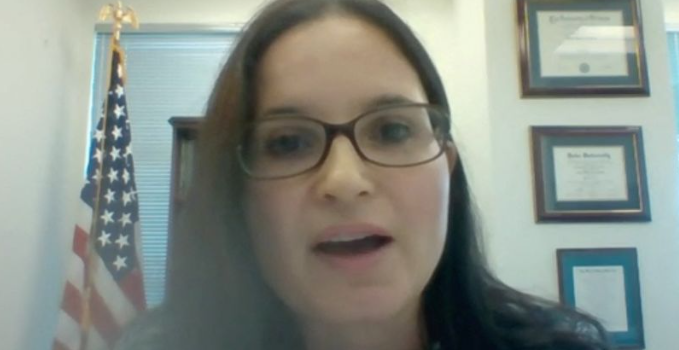
Aileen Cannon’s handling of key procedural issues in the high-profile case will come under closer examination
U.S. District Judge Aileen Cannon, who is presiding over the criminal case involving former President Donald Trump’s mishandling of classified documents, is set to play a more prominent role as legal arguments intensify. After Trump’s indictment a month ago, Cannon is now tasked with addressing significant procedural decisions, including a trial date and how classified information will be handled in the case.
On Tuesday, Cannon will oversee a pretrial conference to discuss procedures for managing sensitive classified documents—a first since Trump’s indictment. The outcome of these discussions will provide a clearer picture of how Cannon intends to manage the case, especially in light of unresolved questions regarding trial scheduling.
The judge’s previous controversial ruling last year, which granted Trump’s request for a special master to review classified materials seized from his Mar-a-Lago estate, remains a focal point of public scrutiny. A three-judge federal appeals panel reversed Cannon’s decision, criticising her lack of legal authority. This ruling, coupled with the public attention on her limited judicial experience, especially in national security cases, has raised concerns among some legal experts about her impartiality.
Despite the challenges, some Florida lawyers are confident in Cannon’s ability to manage the case fairly. Kendall Coffey, a former U.S. Attorney in Miami, believes Cannon will adhere to legal protocols and work diligently to ensure fairness. He expressed confidence in her leadership abilities, particularly given her previous courtroom conduct.
Jeffrey Garland, a criminal defence lawyer in Fort Pierce, also praised Cannon for her ability to maintain order in her courtroom. Garland added that, given the high profile of this case, she would likely exercise control and keep the proceedings respectful.
Cannon, a Duke University graduate, has extensive legal experience, including as an assistant U.S. attorney before being nominated to the federal bench by Trump in 2020. She has also been associated with the conservative Federalist Society, which has added to her public profile.
In the month since Trump’s indictment, Cannon has set a tentative trial date for August but has yet to make major rulings. Disagreements over the trial date remain between the Justice Department and Trump’s legal team. The prosecution is pushing for a December 11 trial, while Trump’s lawyers argue for a delay until after the 2024 presidential election, citing both legal complexities and scheduling conflicts due to Trump’s campaign.
The status conference this week will focus on the Classified Information Procedures Act (CIPA), a law that governs the handling of classified materials in criminal trials. CIPA will play a crucial role in balancing the rights of the defendant with the need to protect sensitive information.
Although some critics have questioned her experience in handling such complex matters, legal experts like Richard Serafini suggest that Cannon can draw on established case law to make informed decisions. As Coffey noted, “The eyes of the world are on her,” as her rulings could shape the direction of this historic case.









